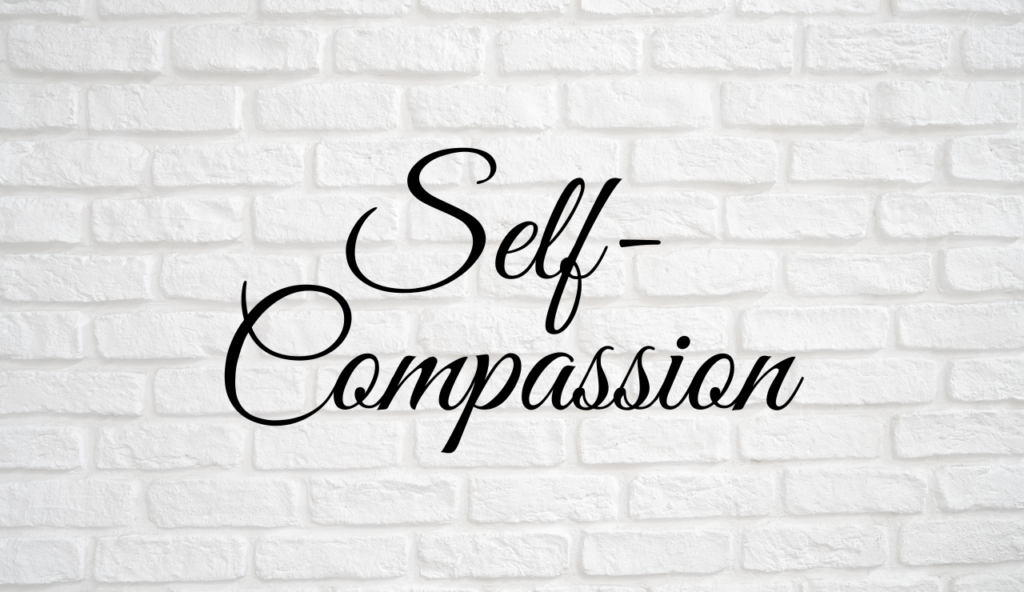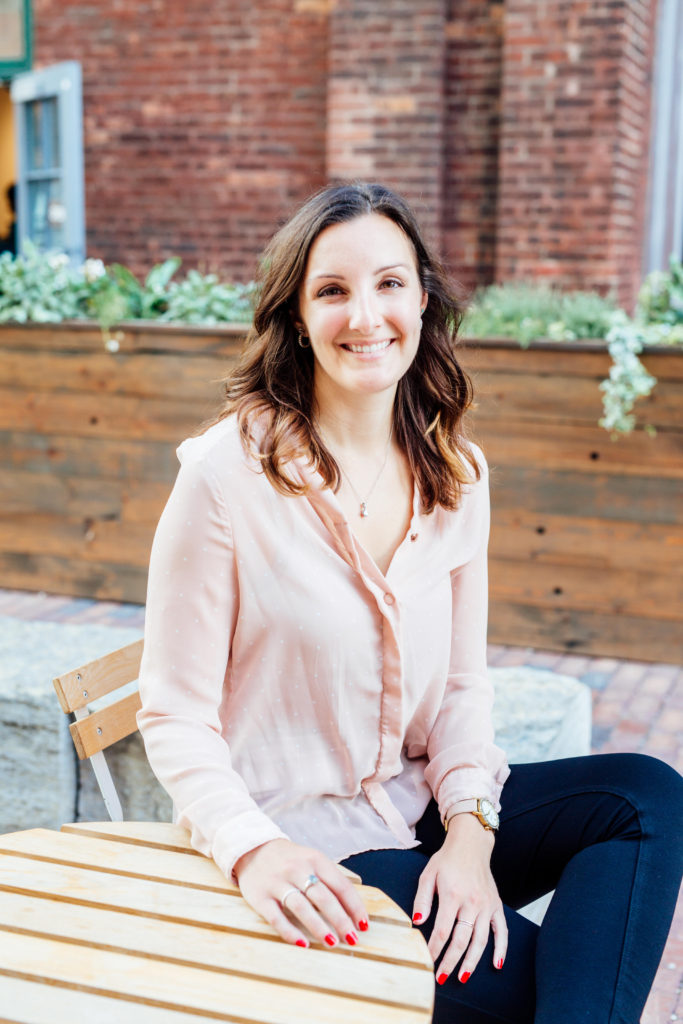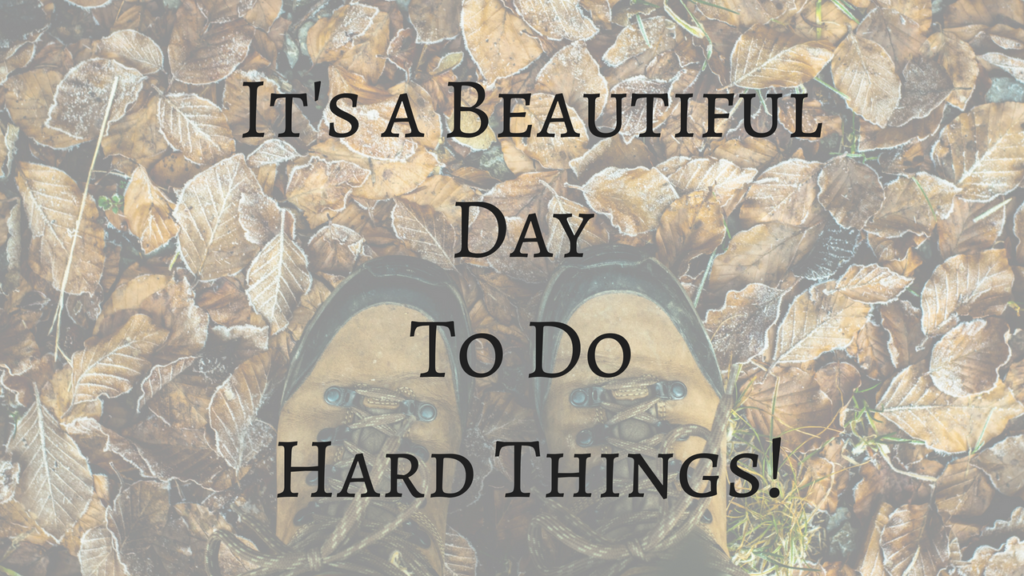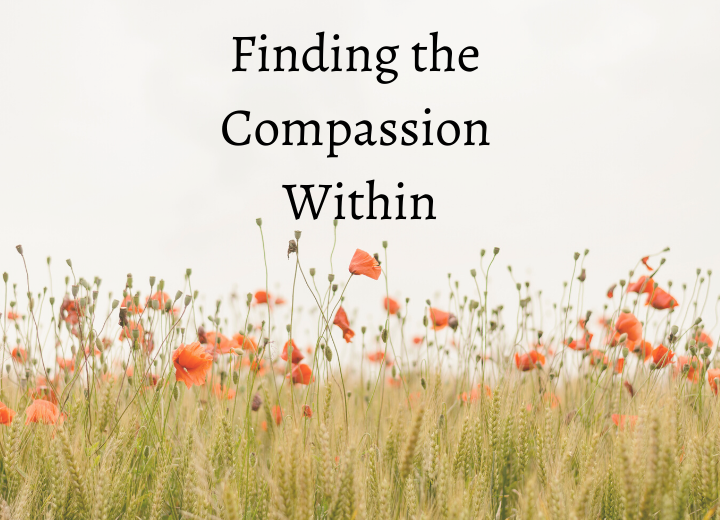Welcome back to another episode of Your Anxiety Toolkit Podcast. Today I want to share with you one of my favorite topics of all time: how to access your compassionate voice.
You may be thinking what exactly does that mean? Well it means helping you to get in touch with the compassion that lives inside each of you. So often my clients and patients say to me “I don’t know how to access compassion” or “I don’t know what that even feels like.” Here is the thing. Your compassionate voice has always been inside of you, but sometimes other messages are simply louder. If you learn to listen deeply for it than it becomes so much easier to pick up. That little voice inside of you is ready to speak up and it is ready to fill you with a loving sense of self-compassion.
During this episode, I walk you through how to begin to access your compassionate voice. You start by closing your eyes, following your breath and asking yourself some questions. These questions help you to tap into your compassionate voice and to start to become familiar with it. First, what does your compassionate voice sound like? What tone does your compassionate voice speak in? How would you like your compassionate voice to show up for you? How do you relate to your compassionate voice? Finally, what do you need from your compassionate voice?
I really hope you will be open and experiment with this practice. It is such a beautiful exercise and the more you do it, the more you will hear and feel your compassionate voice. Even if it seems unnatural at first, I hope you will still give it a try because it can be really helpful for your mental health. Try viewing it as a type of emotional training. You are giving yourself a tool that one day you may need and then you will have it with you and know how to use it. Remember compassion is not about making the pain go away; rather, it is about meeting your suffering with safety. It is about showing up for yourself during the hard times.
ERP School, BFRB School, and Mindfulness School for OCD are all now open for purchase. If you feel you would benefit, please go to cbtschool.com

Welcome back to another episode of Your Anxiety Toolkit Podcast. Today I want to talk with you about self-compassion and to give you a compassion tool to try if you are struggling with feeling worthy, deserving, or comfortable with self-compassion.
In order to understand this tool, I want you to imagine a scenario. Let’s imagine you are having a moment of fear. In that moment, you may naturally engage in a safety behavior, something that protects you from the fear. Safety behaviors are natural. We as humans have learned to protect ourselves by getting away from danger.
However, a problem that often comes with safety behaviors is the unintended consequence. If you have social anxiety and your safety behavior is to avoid social interactions then the unintended consequence may be that you feel lonely. So if you have a fear and you engage in a safety behavior that leads to unintended consequences, you may then judge yourself for how poorly you handled a situation. Here is where the compassion tool comes in. Before you start judging, I want you to try and catch yourself. This takes a lot of mindfulness. Try and recognize that these safety behaviors are part of the human experience. Try telling yourself “all humans engage in safety behaviors because all humans have felt fear, sadness, guilt or shame. I am going to show myself some compassion.”
Another point to remember is that when we have an emotion whether it is fear or sadness or shame and we engage in a safety behavior another unintended consequence is that we are actually making that emotion feel much bigger. The more you don’t want to feel fear, the stronger and scarier it actually feels. Again, I want you try meeting those emotions with compassion. When you notice fear you may try saying “OK I am having feelings of fear. All humans feel fear. This is a normal experience.” Instead of engaging in a safety behavior you might say “Wow fear, thank you for showing up. Thank you for trying to protect me. I am going to send you well wishes because I want to create a relationship with fear that is positive instead of negative."
I truly hope this compassion tool will be of help to you in those moments of struggle. I hope you will show yourself compassion for all of those emotions and feelings that are part of the human experience.
ERP School, BFRB School, and Mindfulness School for OCD are all now open for purchase. If you feel you would benefit, please go to cbtschool.com
Did you know that we were listed in the top 10 OCD podcasts to follow in 2020? https://blog.feedspot.com/ocd_podcasts/

Welcome back to another episode of Your Anxiety Toolkit. Today I want to share with you the five thoughts you need to watch out for during COVID-19. I know we are in a stage right now where we are all trying to adapt to our new normal. Over the past week, I have noticed a few thoughts that have come up with clients about our current situation that I want to share with you.
Here we go. These are the 5 thoughts you need to watch out for during COVID-19.
1. “I cannot handle this.” This is really important because if you are telling yourself that you cannot handle it then chances are you probably won’t. What I would love for you to say instead is, "I can do hard things.” You don't have to do it perfectly, but you absolutely can handle it.
2. “I am going crazy indoors." It is easy to start feeling claustrophobic if you are constantly reminding yourself that you are indoors or cooped up. Instead try switching this statement to “It’s hard for me to be indoors.” I also think it is really important if you are in a place where it is safe and you are able to try and get outdoors every day. Even if it means just standing outside your front door. Getting outdoors at least once a day is so important for our mental health.
3. “When will it end?” This one is really, really hard. If you are spending a lot of time trying to answer this question then you are probably going to end up frustrated, disappointed and more anxious because nobody has the answer. Instead, I would encourage you to try and stay in the present moment. Try focusing on the present day only, not what might happen next week or next month.
4. “Life will never be the same.” Another one that is really hard because there is a lot of grieving happening right now. You may be grieving that your life looks and feels so different. If we keep telling ourselves that life will never be the same, we end up creating a lot more anxiety and ultimately a lot more grief. I think it is so important to give yourself a lot of compassion if this thought is coming up for you.
5. “I should” statements. These look like “I should be handling this better. I should be cleaning my house. I should be learning a new language.” No, we are in the midst of a pandemic. You may not have the energy, bandwidth or mental space to be doing any of those things and that is absolutely OK. I would encourage you to shift your language from “I should” to “I could.” Instead of saying “I should be handling this better.” say “I could be handling this better, but I am doing the best I can with what I have.”
So these are the five thoughts I want you to watch out for during COVID-19. Some of them you may be thinking a lot, some not at all, but I really felt it was important to address these five because it can be so easy to fall into some of these traps!
ERP School, BFRB School, and Mindfulness School for OCD are all now open for purchase. If you feel you would benefit, please go to cbtschool.com
Please join the IOCDF for a live Townhall discussion on COVID-19 & OCD Saturday April 18 at 2 PM EST. There will be a live Q&A session. Please click here for more information.
Did you know that we were listed in the top 10 OCD podcasts to follow in 2020? https://blog.feedspot.com/ocd_podcasts/

Welcome back to another episode of Your Anxiety Toolkit. Today we have Heather Lillico on the podcast. Heather is a registered holistic nutritionist, yoga instructor, as well as a delightful human being. Today she is going to discuss how nutrition can impact mental health.
Heather shares a little bit about her own mental health journey and how that led her to explore the connection between nutrition and mental wellness.
Heather discusses what it means to be a holistic nutritionist. She explains that she focuses a great deal on the whole person, not only how nutrition can impact mental health, but also how a person’s sleep patterns and exercise can as well.
Heather shares some really helpful and fascinating information about how nutrition can impact mental health along with some slights changes you can make in your day to day life to improve your mental health. She takes some time explaining the role that a variety of different nutrients play in our mental well being. Heather does a beautiful job explaining to us how we can be a little more intentional with what we put in our mouths and on our forks. She gives some really simple ways that we can incorporate different nutrients and foods into our daily life. Heather also takes some time to explain the connection between our gut health and our mental health.
I am so excited to share this episode with you at this time. Food keeps us nourished. Food is also a huge source of pleasure. Meal time is when we can join as a family and communicate and have a connection. It's a huge piece of our mental health right now so I thought this was a really, really great time to have this conversation with Heather and talk about all things food!
Heather's website www.heatherlillico.com
Heather's Instagram @heather_lil
ERP School, BFRB School, and Mindfulness School for OCD are all now open for purchase. If you feel you would benefit, please go to cbtschool.com
Please join the IOCDF for a live Townhall discussion on COVID-19 & OCD Saturday April 11 at 2 PM EST. There will be a live Q&A session. Please click here for more information.
Did you know that we were listed in the top 10 OCD podcasts to follow in 2020? https://blog.feedspot.com/ocd_podcasts/

Welcome back to another episode of Your Anxiety Toolkit. Today I want to remind you that you can do hard things!
In this episode, I spend some time talking with you about how important it is to validate all the feelings you are experiencing during this difficult time. With so much going on around the world, there are so many emotions, so many feelings. And I think that we sometimes forget to stop and say, "Wow, this is hard for me," or "Oh, this is a moment of real suffering and struggle for me," or "I'm noticing I'm having a lot of anxiety." It is so important to make space for all those feelings. To acknowledge and validate those feelings and to create a safe place for those emotions to be there as this event rises and falls.
In this episode, I share with you all a little bit about how I am working to validate my own emotions when I am having moments that are difficult. The most important thing I want you all to take away from this episode and to remember during this very, very difficult time is: "It's a beautiful day to do hard things,” and you are doing hard things. You were already doing hard things before this happened, right? But every time it gets a little harder, you realize how much stronger you are. Sending so much love to you all!
Did you know that we were listed in the top 10 OCD podcasts to follow in 2020? https://blog.feedspot.com/ocd_podcasts/
